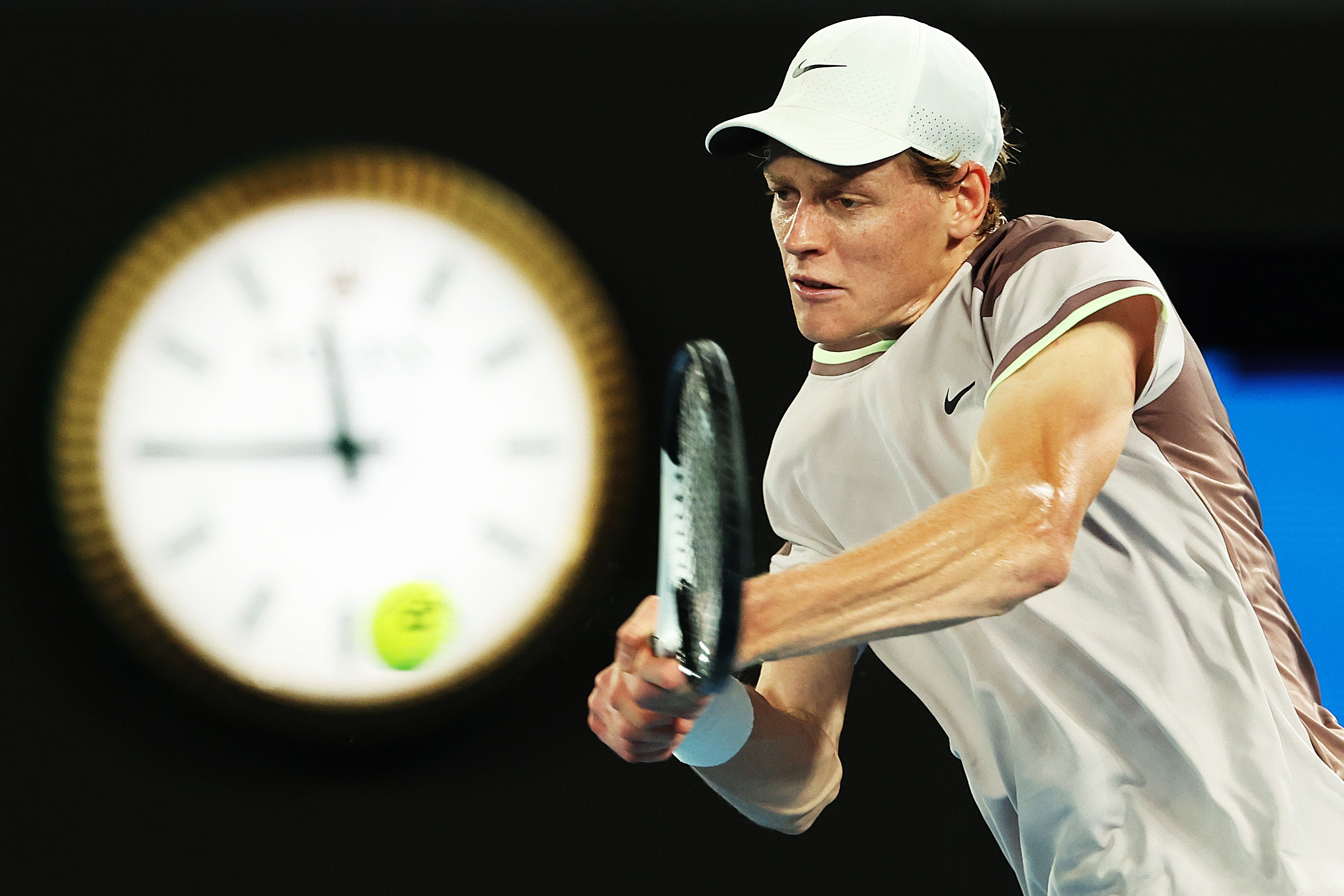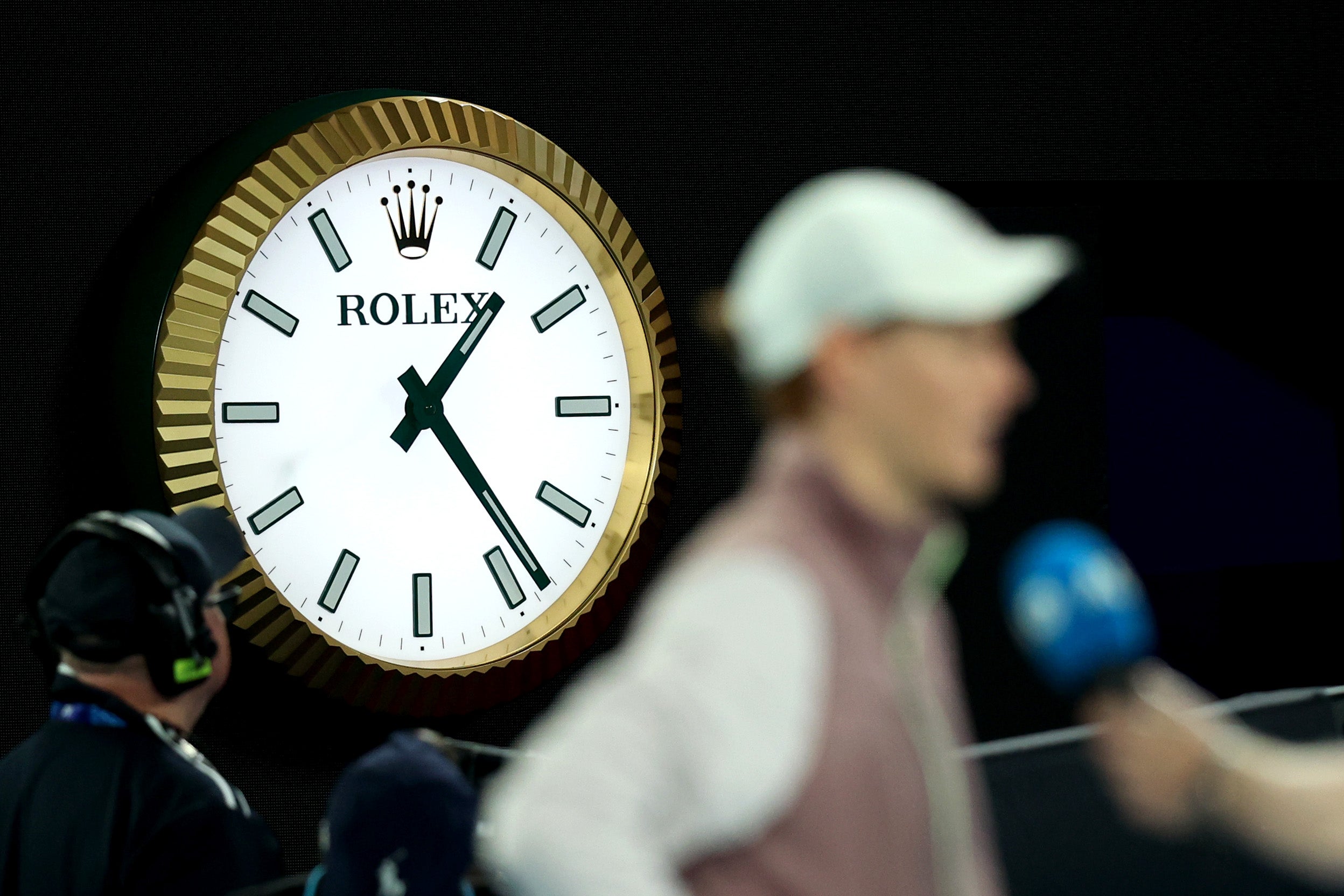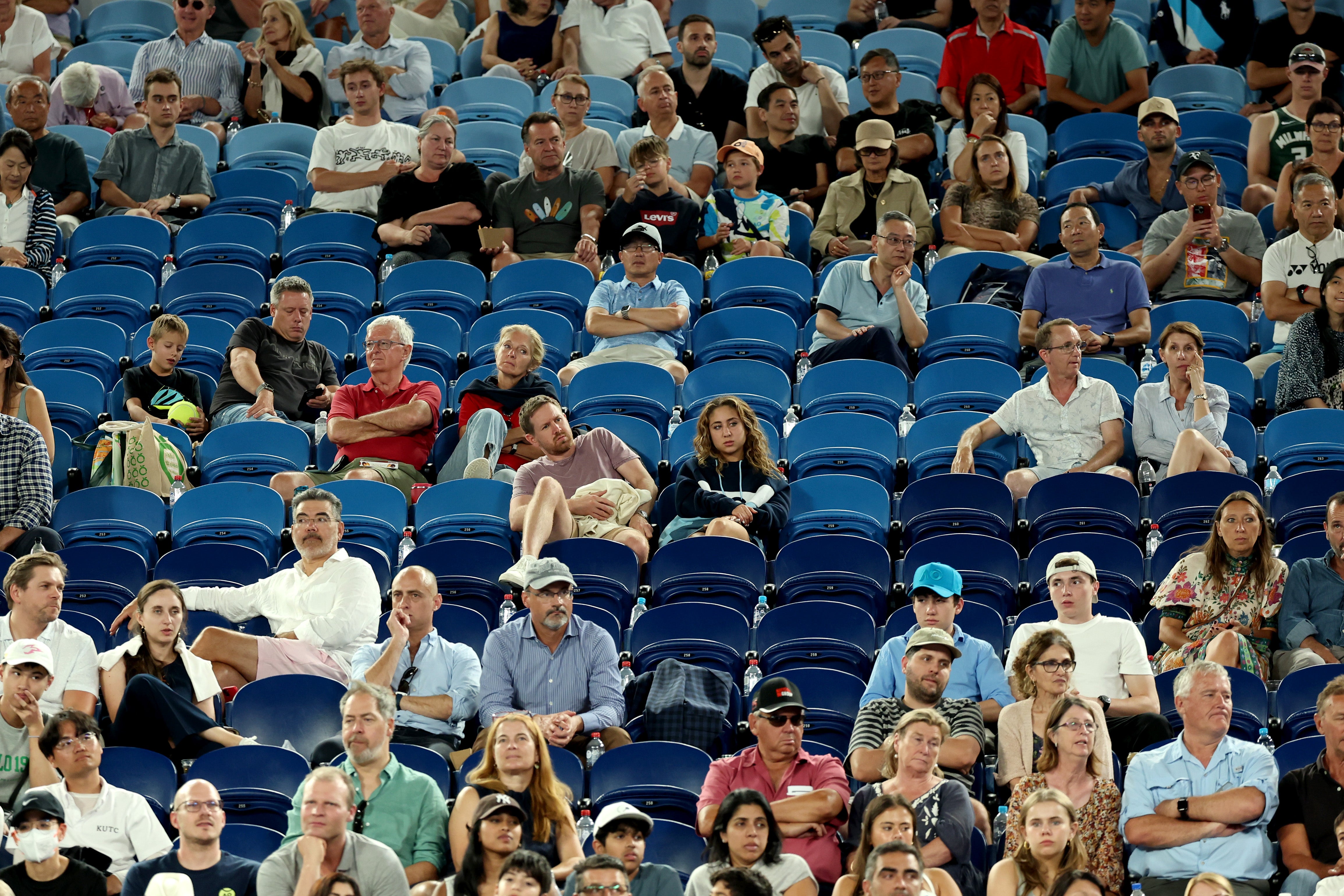Australian Open’s lucky escape cannot cover up its absurd late-night habit
No other sport does this - so why does tennis continue to play when its stars should be in bed?

At 1:24 am in Melbourne, it was tempting to suggest that the Australian Open had narrowly escaped an embarrassing night. As Jannik Sinner defeated Andrey Rublev in straight-sets to advance to the semi-finals, perhaps the tournament organisers breathed a sigh of relief that the day’s play finished at ‘only’ half one in the morning rather than an even later hour. That, however, would only confirm just how ridiculous it is that tennis continues to do this to itself and how these absurd late-night finishes have become part of the game. It is a habit that no one wants, no one benefits from, and a problem the grand slams are seemingly unwilling to kick.
Had Sinner not produced a wonderful recovery from 1-5 down in the second-set tiebreak, or if Aryna Sabalenka had not been so utterly dominant in her thrashing of Barbora Krejcikova in the previous match of the night session, then the Australian Open would have surely staged another match well into the late, late stretches of the night. Fortunately, this was not Andy Murray’s 4am finish from last year, or Daniil Medvedev’s 3:39am comeback against Emil Ruusuvuori from earlier in the tournament. Both those matches went to five sets - Sinner made sure his didn’t. If it had, it may have wrecked his body clock ahead of facing Novak Djokovic in the semi-finals.
But will tennis learn its lesson? This is what the sport has become, at the request and enjoyment of no one. No other sport continues to play past the point of public transport ceasing to run, forcing paying spectators to leave their seats before the last train home. There are others, though, who don’t have a choice, from the ball-kids to the grounds staff, from the medical emergency teams through to the players. There were four men’s and women’s singles matches scheduled to be played on Tuesday, on the first of the quarter-final days, and yet the Australian Open still couldn’t find a way to finish its play at a reasonable time in the evening. “It’s definitely not fun for us,” Djokovic said.

The sport of tennis is getting longer, with this year’s Australian Open on course to break the number of five-set matches played in a single tournament. Yet there wasn’t even a five-set match played at Melbourne Park on Tuesday. This is a scheduling problem. The day’s play started at 1pm local time, an hour later than it did during the first four rounds of competition. With two matches in the day session and two matches in the night session, starting at 7pm, it does not take much for the afternoon’s play to run into evening.
And, as the quarter-finals began, the Australian Open was quickly left facing a headache. Coco Gauff and Marta Kostyuk split their first two sets with both going to tiebreaks - the American eventually outlasting her opponent to win the third set and take a three-hour victory. In hot, sticky conditions, it soon became two long matches, as Djokovic and Taylor Fritz split their first two sets across two hours and 30 minutes.
It was already clear the night session was going to be impacted and delayed by at least two hours. Tournament organisers were stuck between what to do: if the night session suddenly becomes a one-match event, and not the two-match event that was advertised, then ticket holders have the right to request a refund. There were also other concerns, such as the demands of the TV rights-holders. And yet the Margaret Court Arena sat empty. While ticket holders would have lost a match, the other could have been played there. Sabalenka, Krejickova, Sinner and Rublev were all asked if they wanted to move but all took their chance to play on Rod Laver.

Perhaps there should be more authority. Tennis is changing, but not at all levels. The ATP and WTA announced a new scheduling policy at the start of the year in a move that will restrict the number of matches played per day at tournaments and set an 11pm deadline for matches to start. The new rules have been met with a positive response from the players but they are separate from the grand slams, who would need to come together to come up with their own regulations. Despite the Australian Open following the French Open in changing to a 15-day event, with the first round played across three days rather than two, the late finishes have continued.
Wimbledon has its 11pm curfew but runs into its own problems as it refuses to start matches earlier than 1:30pm. The Australian Open seems hesitant to schedule less matches on Rod Laver Arena and continue splitting its schedule into day and night sessions. But it is hard to see why anyone would want to see players taking to court by 11pm, even those who have paid their tickets, when they are left watching a match in a half-empty arena.
The cost is in sleep, recovery and ultimately, quality of play. “It screws up your whole clock,” Fritz said. Medvedev did not get to bed until 7am last week, sleeping for just five hours and waking up at 12pm, his sleep schedule a mess. But while the Australian Open presses on and now gets its blockbuster semi-final between Djokovic and Sinner, it was lucky the Italian will not pay the price of a sport’s absurd addiction for pulling an all-nighter.
Join our commenting forum
Join thought-provoking conversations, follow other Independent readers and see their replies
Comments
Bookmark popover
Removed from bookmarks